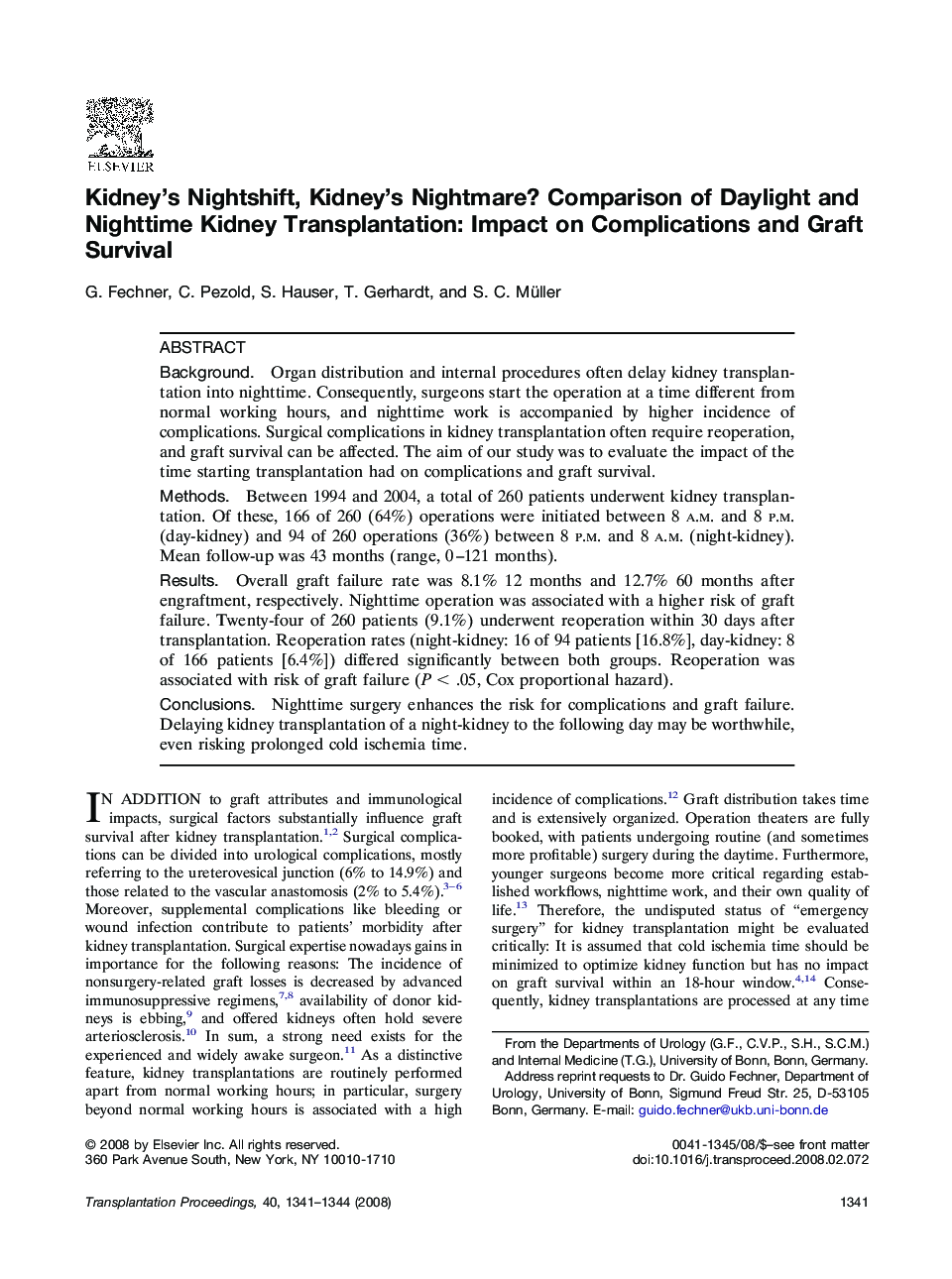| Article ID | Journal | Published Year | Pages | File Type |
|---|---|---|---|---|
| 4258212 | Transplantation Proceedings | 2008 | 4 Pages |
BackgroundOrgan distribution and internal procedures often delay kidney transplantation into nighttime. Consequently, surgeons start the operation at a time different from normal working hours, and nighttime work is accompanied by higher incidence of complications. Surgical complications in kidney transplantation often require reoperation, and graft survival can be affected. The aim of our study was to evaluate the impact of the time starting transplantation had on complications and graft survival.MethodsBetween 1994 and 2004, a total of 260 patients underwent kidney transplantation. Of these, 166 of 260 (64%) operations were initiated between 8 a.m. and 8 p.m. (day-kidney) and 94 of 260 operations (36%) between 8 p.m. and 8 a.m. (night-kidney). Mean follow-up was 43 months (range, 0–121 months).ResultsOverall graft failure rate was 8.1% 12 months and 12.7% 60 months after engraftment, respectively. Nighttime operation was associated with a higher risk of graft failure. Twenty-four of 260 patients (9.1%) underwent reoperation within 30 days after transplantation. Reoperation rates (night-kidney: 16 of 94 patients [16.8%], day-kidney: 8 of 166 patients [6.4%]) differed significantly between both groups. Reoperation was associated with risk of graft failure (P < .05, Cox proportional hazard).ConclusionsNighttime surgery enhances the risk for complications and graft failure. Delaying kidney transplantation of a night-kidney to the following day may be worthwhile, even risking prolonged cold ischemia time.
